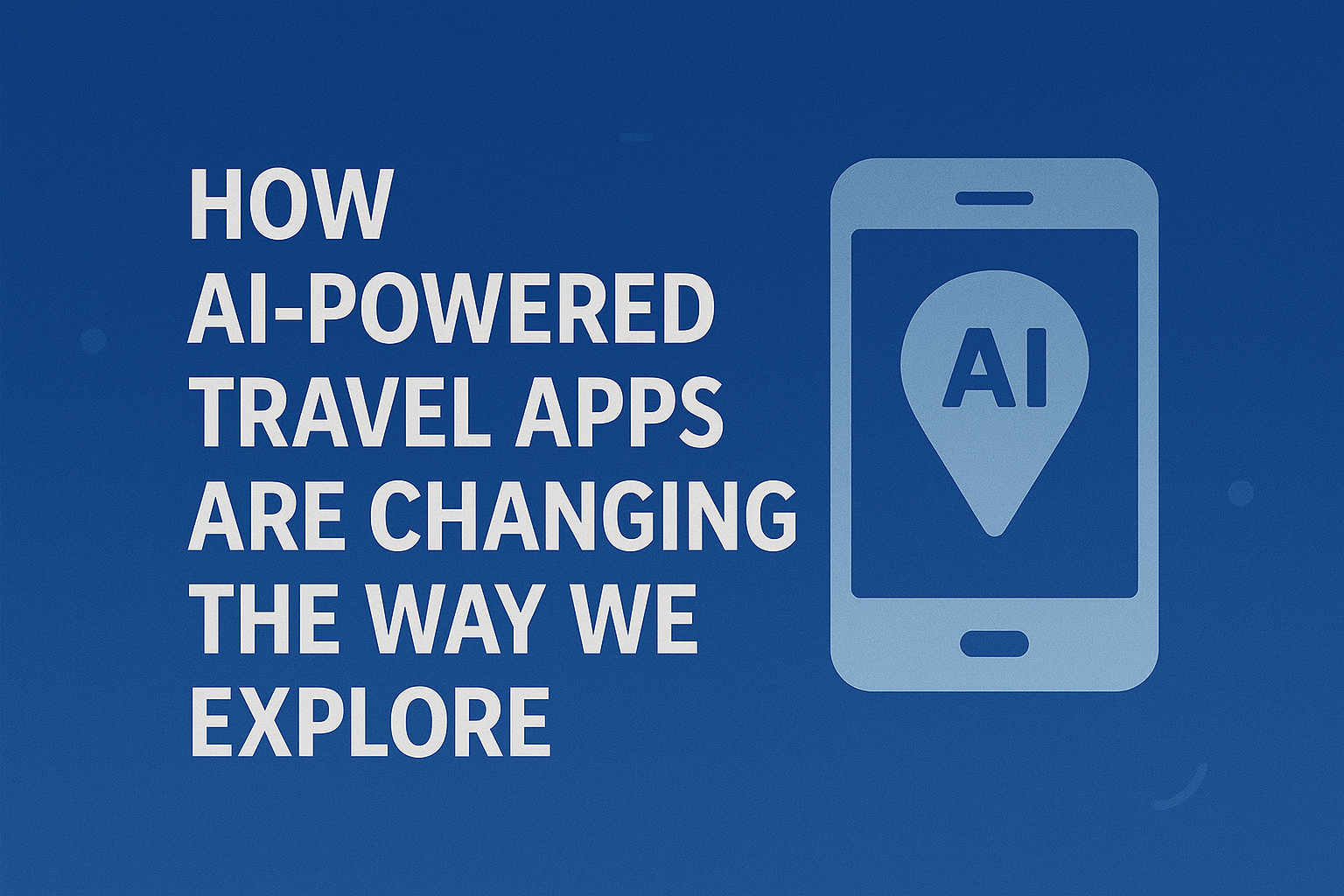Introduction
Gone are the days of bulky guidebooks and complicated trip planning. In 2025, Artificial Intelligence (AI) is revolutionizing the travel industry — especially through smart, intuitive travel apps.
AI-powered travel apps are reshaping how we discover destinations, book trips, navigate foreign cities, and even interact with locals.
Here’s how AI is changing the way we explore the world, making travel smarter, easier, and more personalized than ever before.
1. 🤖 Personalized Travel Recommendations
AI-powered travel apps analyze user preferences, past travel history, and real-time data to offer tailored suggestions. Whether you want hidden gems in a new city, personalized hotel options, or local dining experiences, AI ensures recommendations feel custom-made for your style of travel.
2. 🗓️ Smart Itinerary Planning
Forget hours of manual research. AI travel planners now generate optimized itineraries based on your interests, budget, and available time. These apps can adjust your schedule dynamically, suggesting attractions, dining spots, and experiences — even when you’re on the go.
3. 🌐 Real-Time Language Translation
AI translation tools have made language barriers a thing of the past. Apps like Google Translate and AI-driven chatbots help travelers communicate in real time, read signs, and interact with locals effortlessly, enhancing cultural experiences and reducing misunderstandings.
4. 💸 Dynamic Pricing Alerts and Best Deal Finders
AI monitors flight prices, hotel rates, and travel packages in real time. Apps use predictive algorithms to alert users when it’s the best time to book — helping travelers save money by finding the best deals on flights, accommodations, and tours.
5. 🗺️ Seamless Navigation and Local Insights
AI-based maps and navigation apps now offer more than just directions. They provide real-time traffic updates, suggest the fastest routes, highlight nearby attractions, and even recommend local eateries based on current trends and reviews — turning every trip into a smart adventure.
6. 🛎️ Virtual Travel Assistants
AI virtual assistants act like personal travel concierges in your pocket. They can answer questions, make bookings, offer suggestions, and manage your reservations — all through voice commands or chat, giving you hands-free control during your travels.
7. 🚨 Enhanced Safety and Travel Alerts
AI-powered apps now offer real-time safety alerts, health advisories, and weather updates. They monitor global events and notify travelers of potential risks, helping ensure a safe and smooth journey wherever you go.
8. 🕶️ Immersive Augmented Reality (AR) Experiences
Some AI-driven apps integrate AR to enhance exploration. From interactive city tours to virtual historical guides, travelers can access immersive content overlaid on real-world locations, making sightseeing more engaging and informative.
9. ✈️ AI in Contactless Services
Post-pandemic travel emphasizes contactless experiences. AI helps power contactless hotel check-ins, digital boarding passes, facial recognition systems at airports, and voice-activated services — streamlining the travel experience and enhancing safety.
10. 📈 Continuous Learning for Better Experiences
AI apps learn from each user interaction. The more you travel, the smarter your apps become — offering better recommendations, predicting your preferences, and enhancing your overall travel experience with each journey.
Final Thoughts
AI-powered travel apps have transformed the way we plan, experience, and enjoy travel in 2025. From personalized recommendations and seamless navigation to real-time assistance and safety alerts, these intelligent tools are making travel smarter, safer, and more memorable.
As technology continues to evolve, the future of travel is not just about where you go — but how AI helps you get the most out of every adventure.
